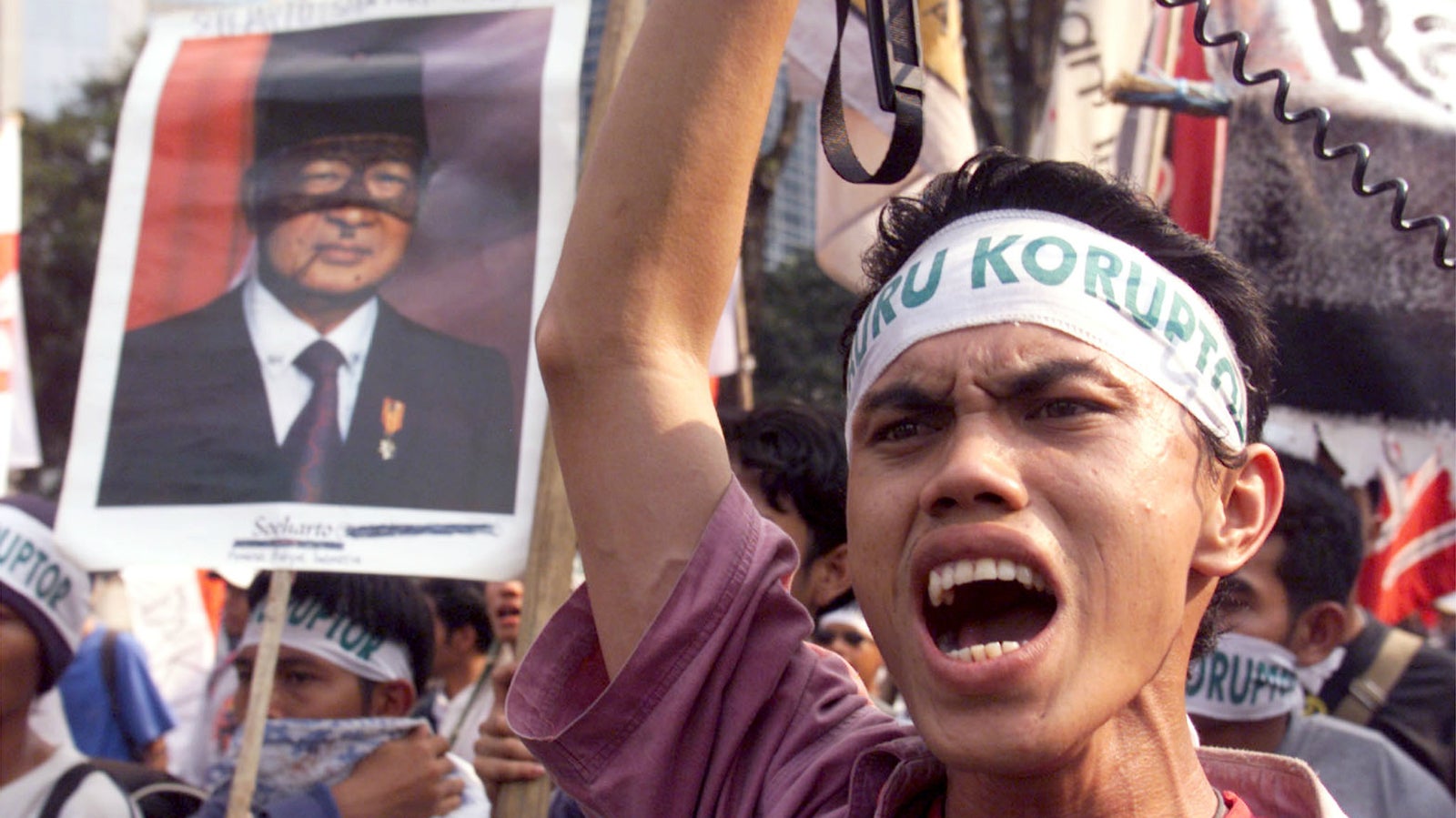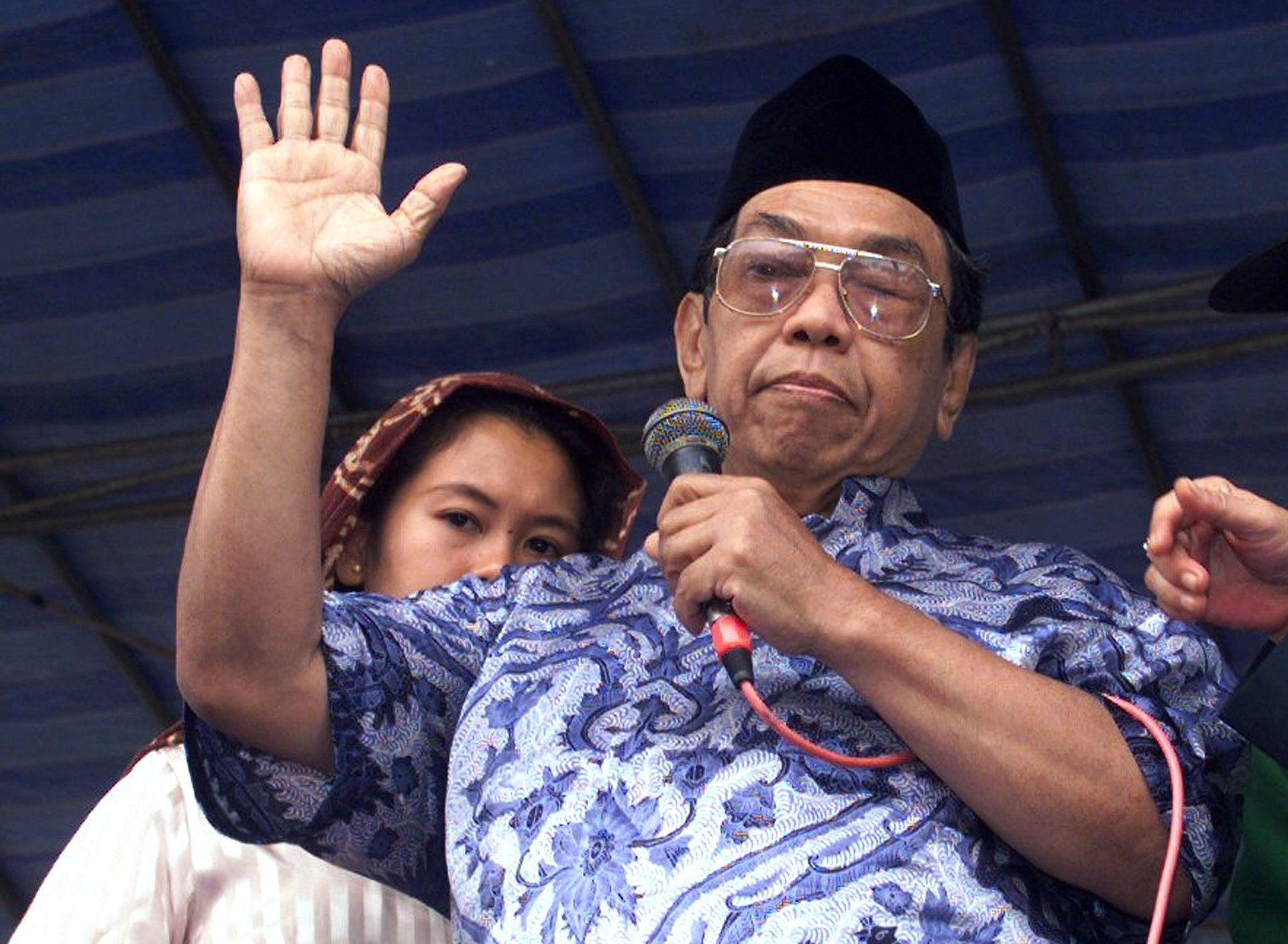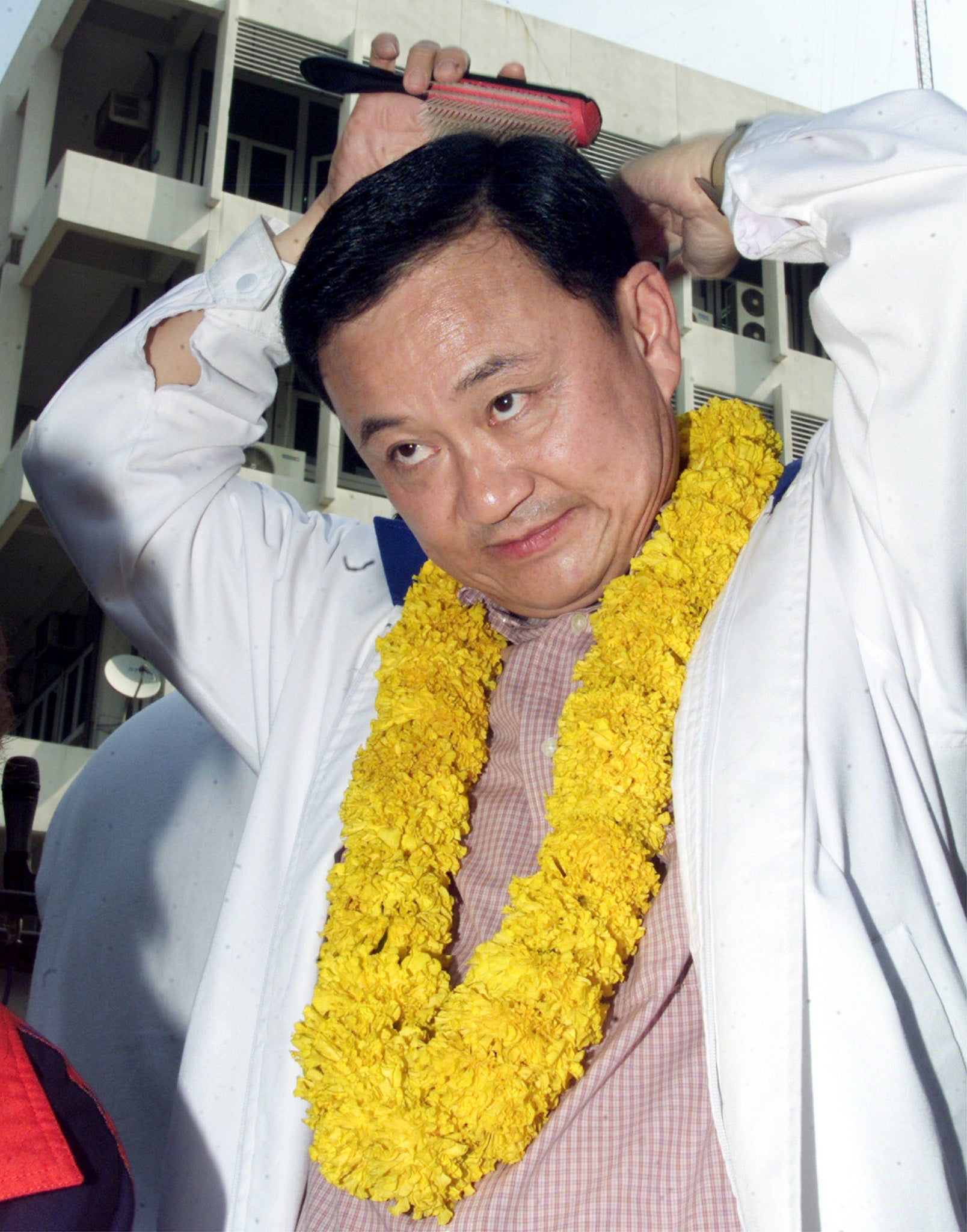From Indonesia to Thailand, Cambridge Analytica’s parent influenced southeast Asian politics
In the tumultuous months after protests and riots wracked Jakarta, bringing down Indonesian president Haji Muhammad Suharto in May 1998, a British political consultancy arrived on the scene.


In the tumultuous months after protests and riots wracked Jakarta, bringing down Indonesian president Haji Muhammad Suharto in May 1998, a British political consultancy arrived on the scene.
SCL Group, the parent company of Cambridge Analytica (CA), says it came to southeast Asia’s most populous nation at the behest of “pro-democratic groups” to ”assist with a national campaign of political reform and democratization.” The country was still reeling from the Asian economic crisis that started in 1997 and the exit of a leader who had held on to power for three decades. The British firm’s assignment eventually included surveying thousands of Indonesians, managing communications for politicians and, most curiously, organizing large rallies at universities to help students “let off steam,” according to company documents accessed by Quartz.
The documents, issued around 2013, also highlight SCL’s role in nearby countries. In Thailand, the company claims to have spent nine months surveying voters before staging an intervention on behalf of multiple political parties.
SCL later morphed into CA, which allegedly used the data of some 50 million Facebook users to influence voters during Donald Trump’s 2016 presidential campaign. Its purported ability to affect large numbers of people seems to have been tested and honed a decade and a half earlier, in the political upheaval of southeast Asia. The documents provide a more detailed—if one-sided—insight into the workings of SCL beyond what former employees like Christopher Wylie have described in interviews and testimonies. In total, SCL claims to have worked on more than 100 election campaigns across 32 countries.
After Suharto’s fall
Amid the violence that marked the aftermath of Suharto’s 1998 resignation, SCL was tasked with managing growing frustration with the new administration of president BJ Habibie. To better understand the sentiment of Indonesia’s 220 million people, spread across 33 provinces, the company rolled out a countrywide survey that had 72,000 respondents. The documents outline the findings:
It was clear from the research that it was the younger “university” age-group that were the principle instigators of the unrest and conversely the older generation were weary of insubordination having been suppressed for so long that they had come to tacitly accept their lot in life. Consequently, it was decided to focus on the 18-25 M/F (male/female) segment of the population and to redirect their frustration away from civil unrest.
SCL then focused its research around secondary schools and local universities, and discovered that the rise in insubordination was partly triggered by the increased presence of police and military troops on the streets. Eventually, it decided to sponsor “organized avenues of protests” to draw in students and keep them away from violent demonstrations. This was apparently done with the cooperation of the Indonesian government, which initially had some misgivings about such large gatherings.

“Large rallies were organised at each university. This was achieved by establishing a rally committee and financing activities and coverage across the country,” the SCL documents said. “The events were so large that there was a general feeling amongst students that their voice really had been heard.”
SCL claims its methods worked, dramatically reducing civil unrest, convincing Habibie to step down, and leading to elections that brought Abdurrahman Wahid to power in 1999.
The documents don’t specify who SCL initially worked for in Indonesia, but they indicate that the company managed the election campaign of Wahid’s National Awakening Party. There is, in fact, a one-line testimony from Wahid: “I am indebted to SCL for their strategic management of my election success.”
However, there are doubts about the effectiveness of SCL’s work. President Wahid, for instance, was impeached in 2001 after presiding over a chaotic administration that failed to stabilise the country. All of SCL’s efforts—including reportedly setting up a slick operations centre with 25 computers and 16 flat-screen monitors—evidently did little to help Wahid’s situation.
Indonesia experts also question if SCL could have made much of a difference in tamping down violence. “I think this is an exaggeration,” said Ian Wilson, a lecturer at Australia’s Murdoch University. “It would have been, at most, one small element among all that were taking place at the time.
“The forces and interests at play and jostling for influence were simply on too big a scale to have been influenced significantly in such a way. The protest also had been going on for months, if not years, at different levels of scale and intensity,” Wilson added.
Before Thaksin’s coming
In Thailand, too, SCL claims to have set up a large operation that went on for months.
The documents don’t provide exact timelines, but the company appears to have got started sometime before the 2001 elections that swept telecom billionaire Thaksin Shinawatra into power. In this case, SCL’s mandate was to ascertain the scale of vote-buying behavior—a longstanding issue in the southeast Asian country—that had inflated the cost of running an election campaign to around $1 billion, according to the company’s estimates.
“The research showed that the vote buying practice had become so endemic that an entire industry of dealers had emerged to broker the voter groups and funders,” the documents said. “It was quite commonplace for voters to sell their votes twice—and then not vote at all!”

As in Indonesia, SCL set up a research project to collate data from all 79 constituencies, using a staff of more than 1,200 that worked over nine months. The objective was to assess the underlying motivation of voters and identify how open a particular constituency was to accepting a change in vote-buying behavior.
In 50% of the constituencies assessed, the research found, vote-buying did not impact the electoral result, a finding that SCL claims was worth $250 million alone. However, the company identified 91 constituencies where money did matter. ”In these constituencies a more direct behavioural intervention was required which consisted of a full-spectrum approach (FSA) combining social pressure, economic penalties, legal framework and enhanced monitoring,” the documents suggested.
Apparently, with “the cooperation of most of the major political parties,” SCL implemented a six-month intervention. The result: Shinawatra, one of Thailand’s richest men, won the 2001 polls. SCL also insists that vote-buying dropped by 31%, a result it pegs at around $420 million in value.
Chuan Leekpai, former leader of Thailand’s Democrat Party who served as prime minister twice, wrote a glowing review of SCL’s services. “Winning an election is about choosing your battles carefully. SCL made clear those conflicts that could be won, those that could not, and those that had to be hard fought for,” said Leekpai, according to the documents.
It is entirely plausible that international political consultancies like SCL may have been engaged by Thailand’s major political parties. “There’s no doubt that some Thai political parties have commissioned international consultants to work on improving their electability, and this was certainly the case for Thaksin’s Thai Rak Thai Party in 2001,” said Duncan McCargo, a Thailand expert and professor at the University of Leeds. “Thai political parties want to win elections and some of them brought in whatever expertise they could to advise them.”
However, there is some skepticism about the possibility of multiple parties supporting a project to stop vote-buying, as the SCL documents suggest. “Vote-buying has been a widespread issue of concern in Thailand and was the basis of considerable public interest/moral panic in the 1980s and 1990s… the 1997 constitution included various provisions designed to combat and reduce vote-buying,” McCargo explained. “There was broad popular support for these changes, though I can’t say that translates to ‘cross-party’ support.”
Quartz has reached out to CA and SCL, and this story will be updated if they respond.